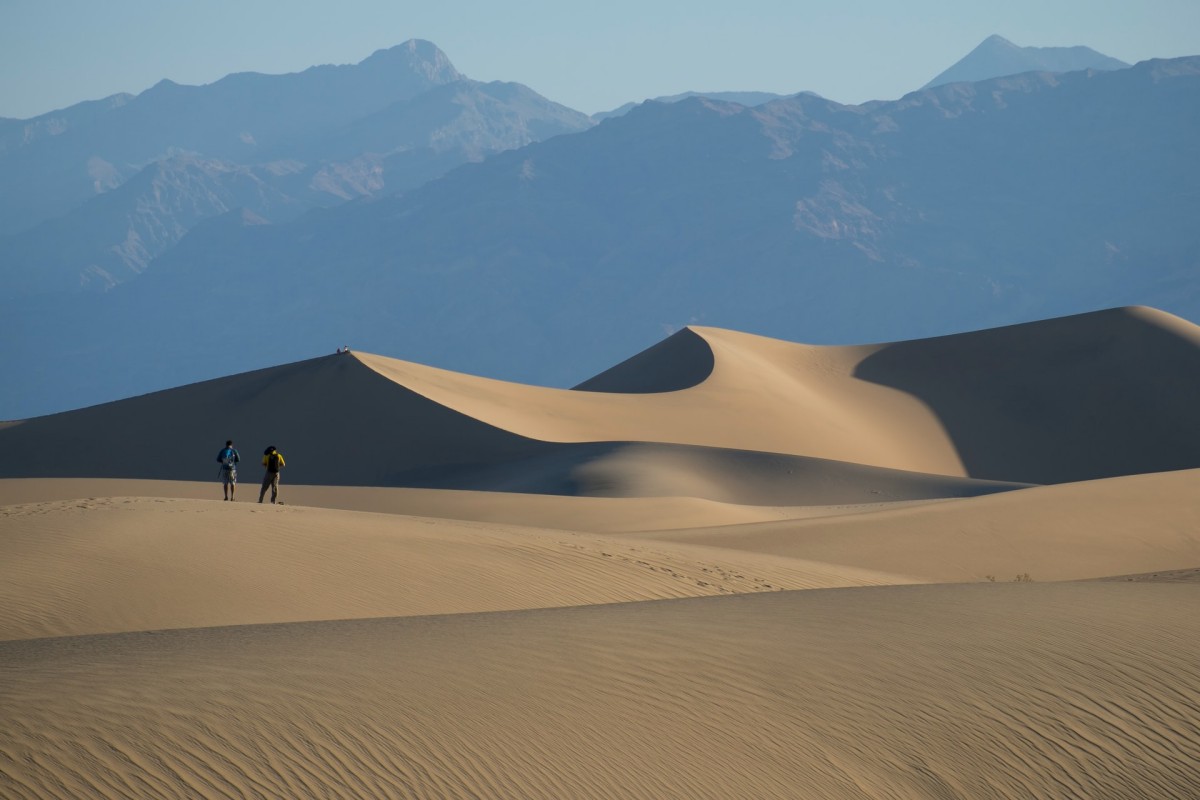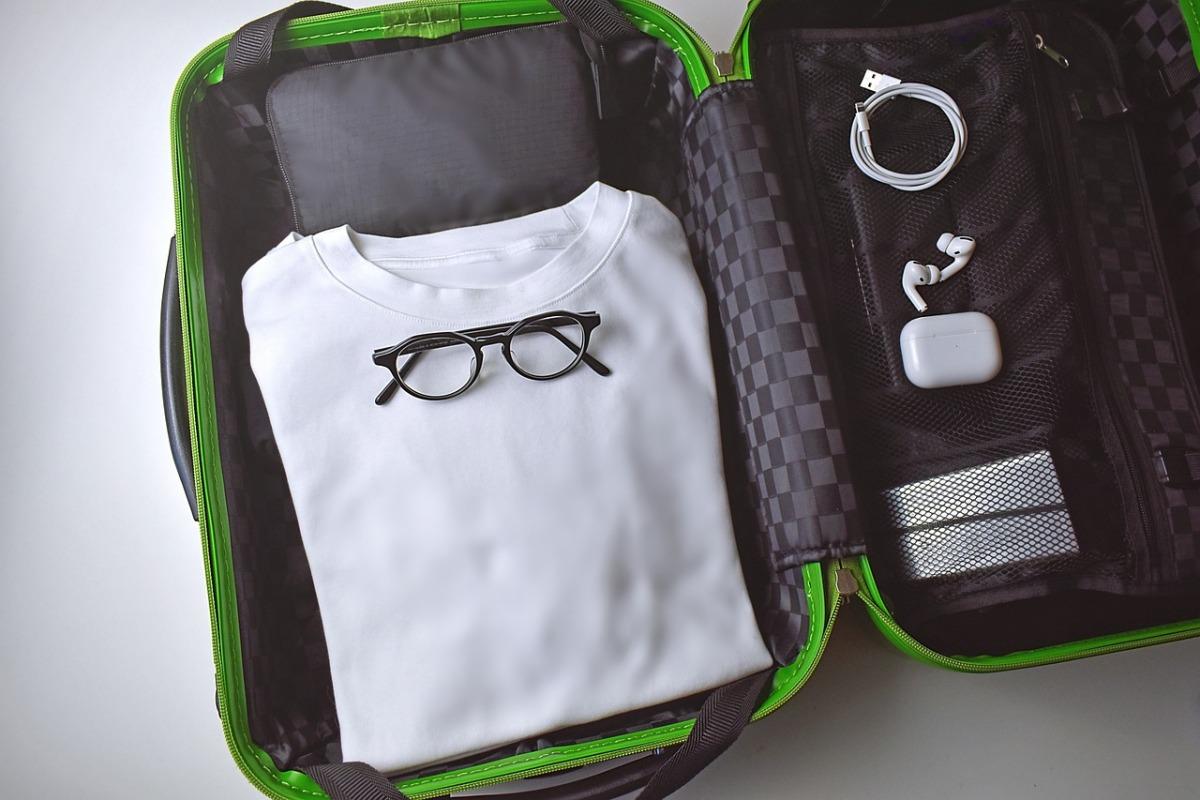14 Night Hike Tips – Your Ultimate Guide to Hiking at Night Safely
Looking for more info about hiking at night?
You’re in the right place!
In this guide we’ll cover everything you need to know about night hiking, from safety, to tips and recommended gear!
Let’s dive right in with the basics.
What Is Night Hiking?
Night hiking is exactly what you think of: it’s hiking when it’s dark outside. Just like you would hike during the day, you hike at night.
Compared with a typical day hike, night hiking is a totally different experience.
When the sun sets, the change of scenery is astonishing. Walking under the stars, spotting shooting stars darting across the sky or even a meteor shower when the skies are clear are great reasons to get outdoors when the night falls.
Imagine hiking up to a hill over 2 alpines lakes in Picos de Europa just before sunset. It is a stunning, must-see vista for an avid hiker.
Wild animals that hide during the day come out when everything gets dark. You’ll be surprised by many unfamiliar sounds. Seeing and hearing wildlife like owls and crickets will definitely boost your adrenaline.
It’s definitely best to start this after-dark adventure before the sun goes down. And read some hiking quotes to get in the mood, or some bushcraft books to prepare yourself (just kidding 😉).
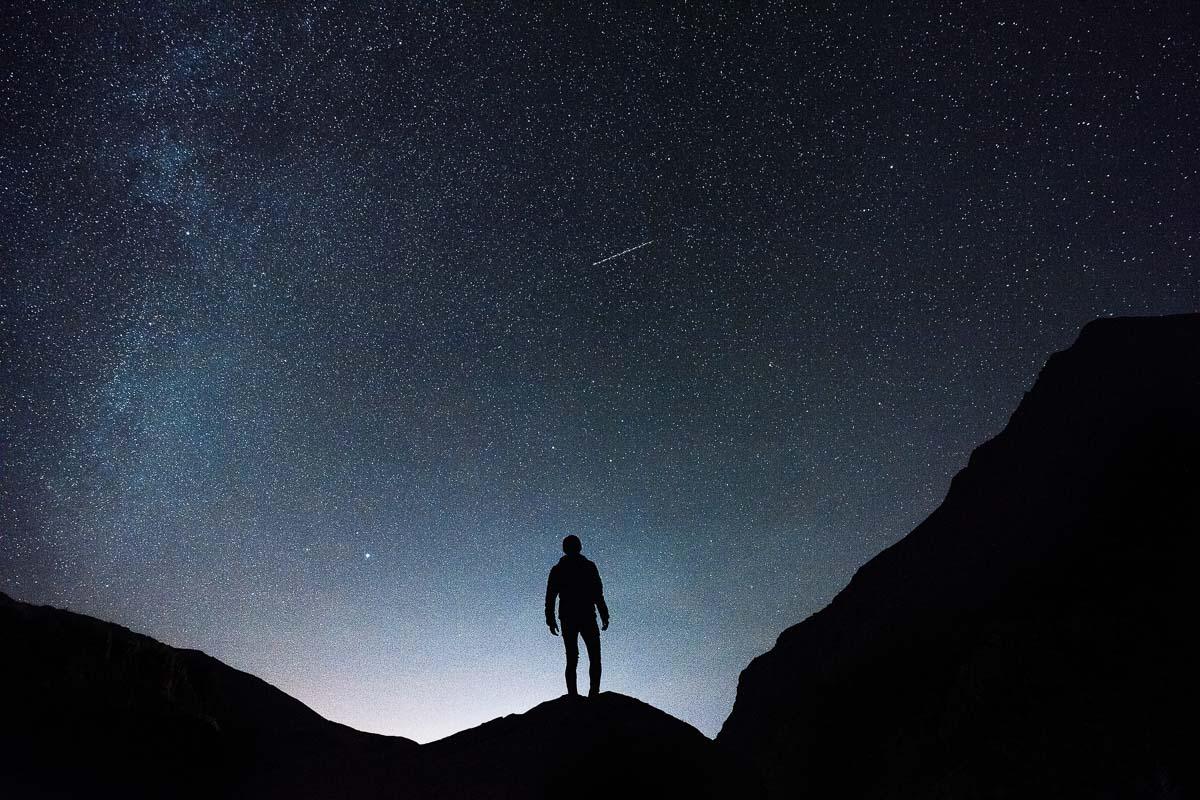
Can You Go Hiking at Night?
Yes, you can go hiking at night, and you definitely should. Seeing another perspective of beautiful scenery like the Jurassic Coast of England, animal sightings, stargazing while hiking in the shimmering lunar light are a nocturnal hike’s special treats.
Many people who gave night hiking a chance, found it to be a transformative experience, especially to those living in the urban areas.
As with any other outdoor activity, adequate preparation is vital. There are certain concerns when it comes to night ventures that should be taken into account, and they will be addressed below.
If you plan to hike in a state or a federal park check with the park office if the trails are open to the public at all times.
Persons with certain disabilities should under no circumstances night hike alone, or even not at all, depending on the impairment they have.
How Can I Hike at Night Safely?
Night time hiking has a special allure to it, but since humans are not nocturnal creatures endowed with superior night vision there are certain risks to hitting the tracks at night.
Preparing well and taking up safety precautions is necessary to fully enjoy this amazing experience, and to maximize hiking safety at night.
It differs a lot from hiking in broad daylight, so you need to be fully prepared to avoid injury, getting lost or any other potentially hazardous situation. It requires a different approach and different gear.
You can find quality hiking gear here.
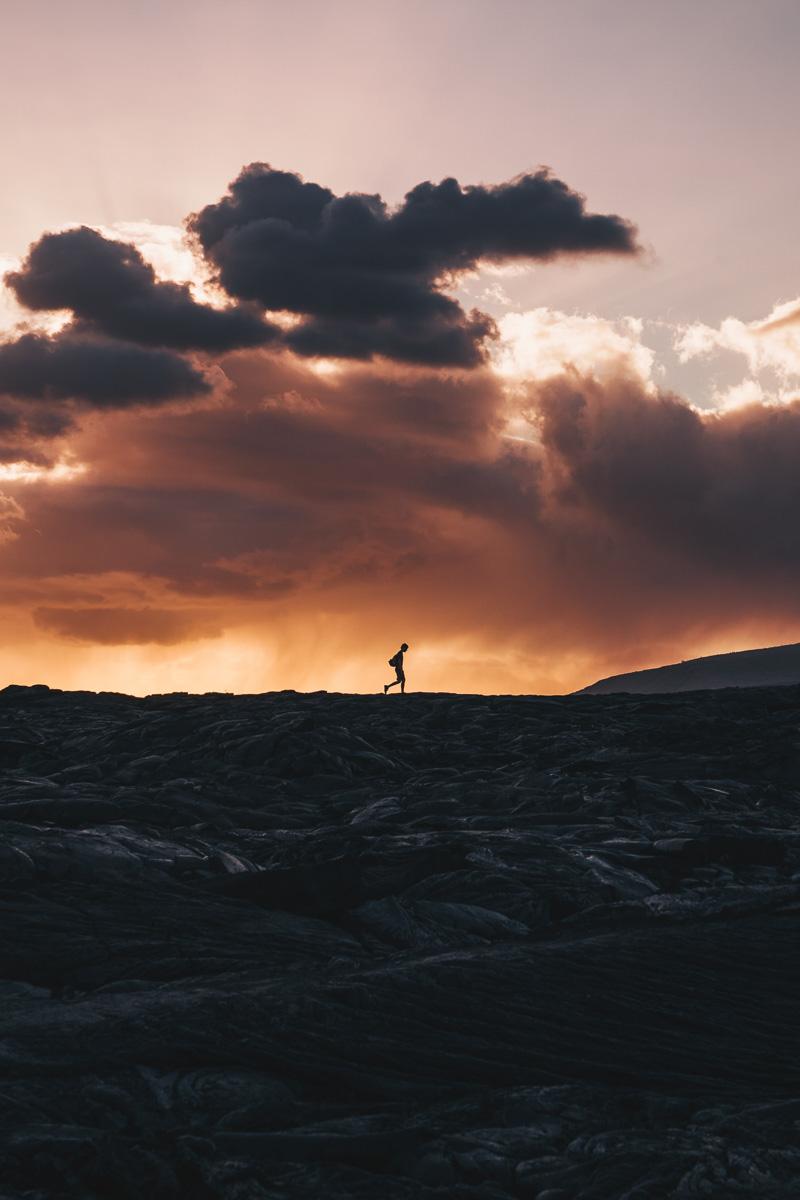
14 Do’s and Don’ts of Night Hikes
To make sure you have successful and safe night hikes, I’ve put together the best hiking at night tips for you.
Successful tips for night hiking:
- Stick to the trails you know well
- Check the trail the day before the hike
- Stay on the designated trail
- The best time to start is just before sunset
- Plan your hike according to the moon cycles
- Let someone know about your plans
- Get to know your equipment
- Make sure to bring plenty of lights
- Hike in a group
- Consider weather conditions
- Dress in layers
- Pack enough supplies
- Don’t disturb the wildlife
- Don’t rush
So there you have them, the best night hiking tips for you!
If you want more details on each of these 14 tips, keep reading below for the full night hiking checklist.
1 – Stick to the Trails You Know Well
The night is not the time to explore new trails. With lower visibility, the chances of injuries or getting lost are much higher. Pick a familiar trail where you’ll know what to expect to stay safe. And don’t worry – the light of the moon will provide a whole new dimension to the same tried-and-true trails.
If you wish to expand your hiking area, before heading out at night-time be sure to traverse new tracks several times during the day.
2 – Check the Trail the Day Before the Hike
Play it safe and scout out the trail a few days prior to the hike.
This way you will identify potential threats and changes to the track. Flooded streams you will need to cross or broken branches might lead to a broken ankle when the visibility is less than perfect, so scouting out in advance can prevent tripping and falling.
3 – Stay on the Designated Trail
Wandering off the known route can be highly dangerous. For your own personal safety, make sure not to venture off. Staying on the main trail at all times is crucial to avoid any risky situations.
4 – The Best Time to Start Is Just Before Sunset
Since adjusting your eyes to the darkness might take up to 30-45 minutes, it is best to head out just before sunset. This will help your vision gradually adapt to the dark.
Consider hiking among colorful villages of Cinque Terre in Italy for awesome sunset views. Surrounded by the ocean, an incredible amount of beauty packed in this part of the Liguria coast will surely make you come back for more.

5 – Plan Your Hike According to the Moon Cycles
Without daylight, it can really get dark out there. Plan your night ventures according to the moon cycles and use the moon as the source of natural light.
Among many others, New Jersey offers full-moon night hiking trails. Bryce Canyon’s full-moon hikes provide a different perspective on the red rock landscape. A magical night journey in a beautiful silver glow is an out-of-this-world experience.
And if you are looking for peace and serenity then hiking the dunes under the mystic lunar glow in White Sands National Park in New Mexico is a perfect choice.
6 – Let Someone Know About Your Plans
This tip shouldn’t scare you or put you off enjoying night hiking, but you’re already aware that this activity can be dangerous if you don’t do everything by the book.
Tell someone you trust where you are going to and when to alert the authorities if you haven’t returned.
Many outdoor locations have no phone coverage, so relying on a cellphone is a bad idea.
A trusted contact can alert emergency services if something goes wrong.
7 – Get to Know Your Equipment
Don’t bring brand-new gear before getting to know the ins and outs of each piece. If you need quick access to the equipment and you have never used it before, you may find yourself in trouble.
8 – Make Sure to Bring Plenty of Lights
Flashlights and proper headlamps are a must. Also, lighter and tinder might come in handy. A headlight with a red light mode provides optimal night vision.
The red light option helps preserve the night vision when you have to use artificial light sources.
Use the lights only as an aide. Your eyes need to adapt to the darkness, so keep the lights within reach and use them only when needed. After some time in the dark (30-45 minutes) your night vision will kick in and you will see things more clearly.
Glowing (reflective) bracelets are a great way to keep group members visible.
9 – Hike in a Group
Avoid hiking alone at night. In case of an emergency, a group of people is a safer setting. Make sure to stay close to your group at all times.
To check if there are night hike groups in your area ask around at hiking clubs, your local REI store and a nearby state park.
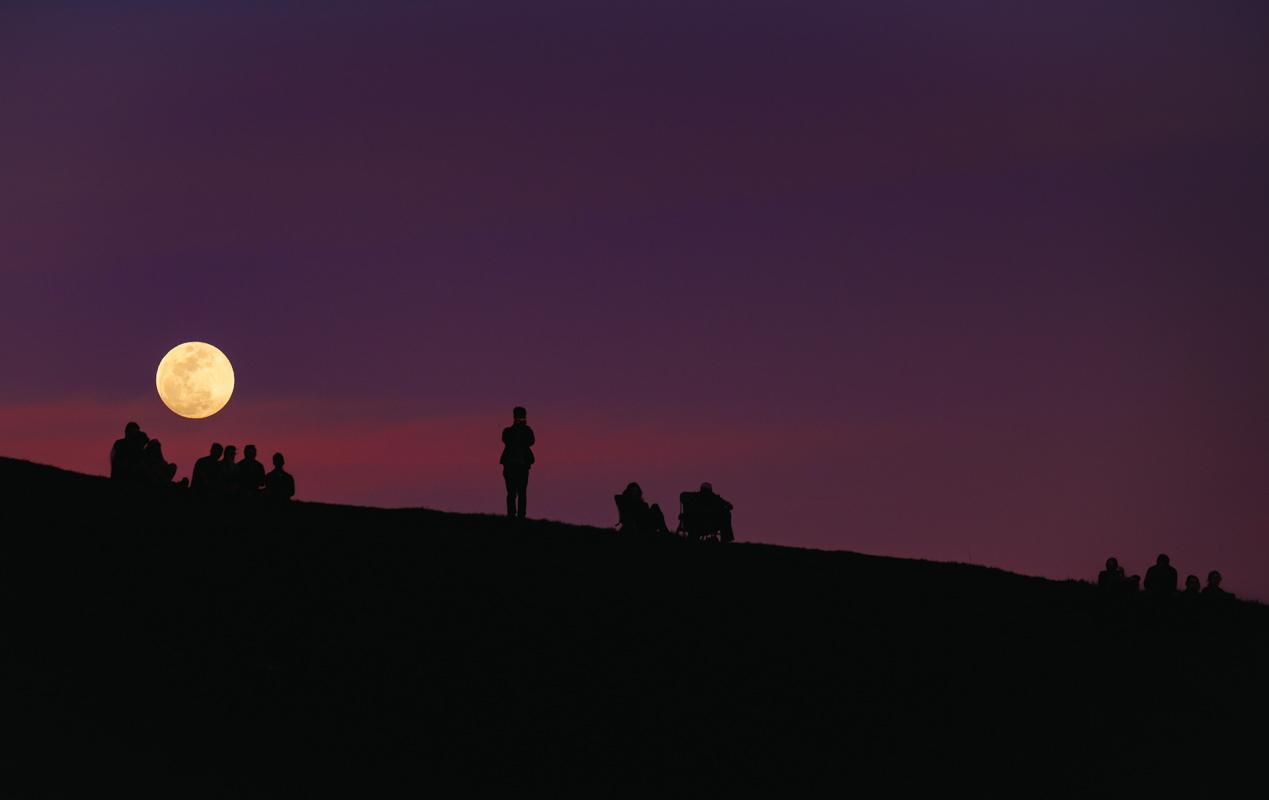
10 – Consider Weather Conditions
Weather can be highly unpredictable in some places. Always make sure to check local weather conditions and bring warm and waterproof clothes. Even if the day is sunny, cooler temperatures are common at night.
Opt for good weather and clear skies to stay trouble-free. Watch out for fog, rain, and snow.
11 – Dress in Layers
Warm hiking footwear, wool socks, and a warm jacket are a must-have on a cold night. Hats and gloves might also come in handy if the temperatures fall more than anticipated. Even in summer, the temperatures in the night are usually cooler, so dress accordingly.
12 – Pack Enough Supplies
Bring along enough food and water plus a bit extra, just to be safe on the safe side.
13 – Don’t Disturb the Wildlife
Be mindful and don’t disrupt the wildlife you encounter. Admire nocturnal animals from a respectful distance. Also, research on the common animals in the area you plan to visit. Pay special attention to dangerous species and what to do if you happen to stumble upon one of these creatures.
14 – Don’t Rush
Take it slowly since moving around is way more challenging in the dark. When the sun sets you can’t see your surroundings as well as during the day. It is best to slow down your pace as you might not observe roots and rocks on the trail. Staying extra cautious will help you avoid falling and tripping.
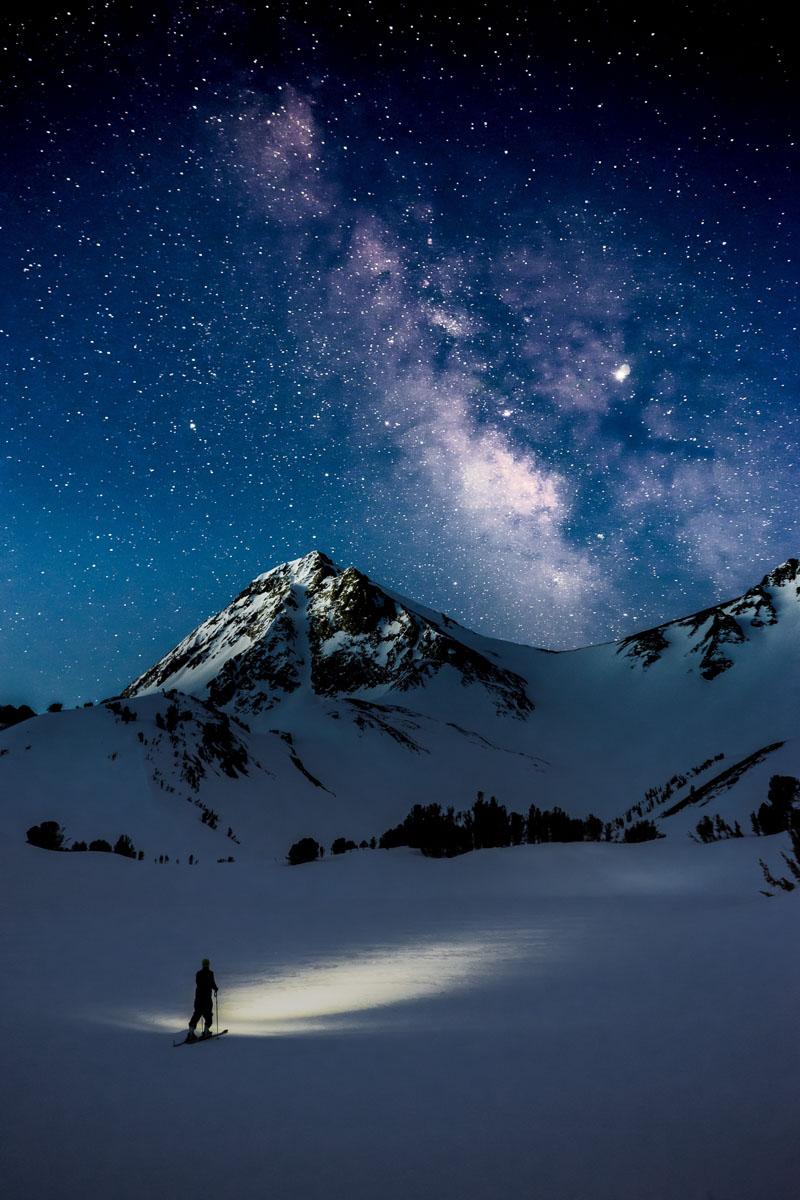
Pack the Right Night Hiking Gear
Besides basic hiking essentials, you are going to need some additional items for a safe nocturnal hike.
Night Hiking Gear:
- A quality headlamp
- Flashlights
- Lighters or matches
- A loud whistle
- Good trekking poles
- A handheld GPS
- Extra batteries
- A portable charger
- Night vision binoculars
- A survival kit
If you plan to spend the night in nature a lightweight, waterproof tent is essential.
Hiking by the light of the moon against majestic backdrops is an amazing experience you shouldn’t miss. Experience the world of nature you have never seen before and feel the therapeutic effect of connecting to nature.
Are you Allowed to Hike at Night?
Yes, absolutely, you are allowed to hike at night. When the sun goes down, you can hike to the same places where you would usually hike. There is no special law forbidding you to hike at night.
You just need to make sure that the place where you plan to hike is not closed. If you see a fence, whether it’s night or day, don’t hop it; stay on the trails.
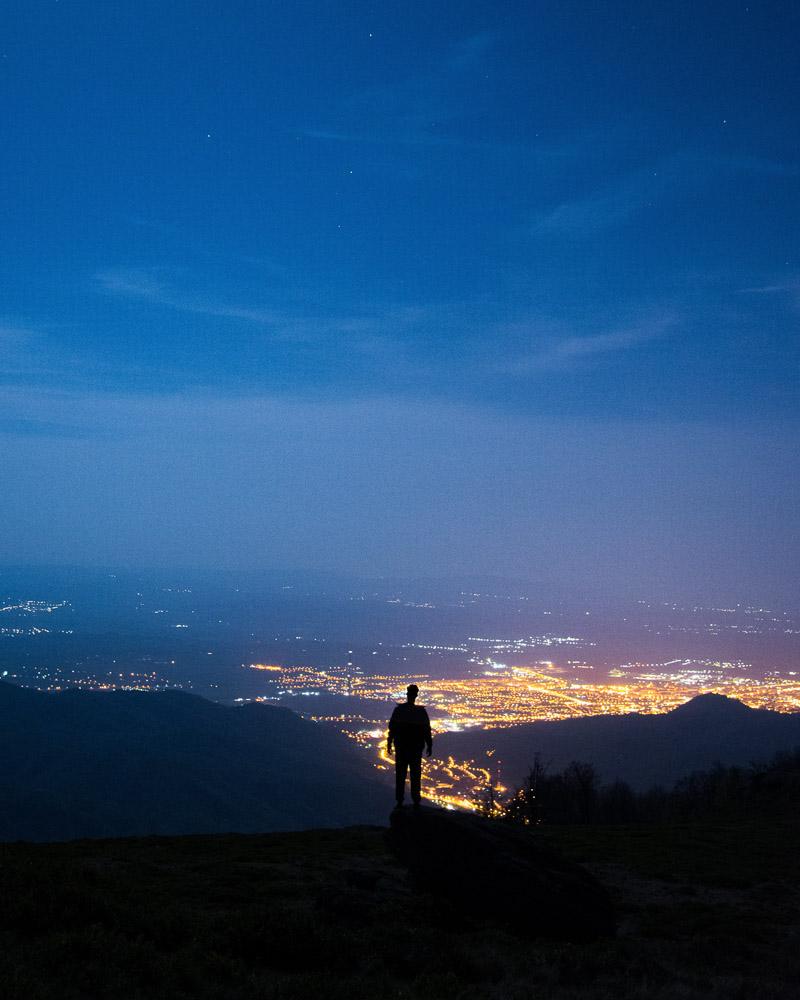
Is Night Hiking Dangerous?
It can be if you’re unprepared. However if you follow all of the tips I listed above, you will be totally fine and you’ll have a wonderful experience hiking trails at night under the stars.
Loved this post? Then share it using the button below to help fellow hikers find the best tips for going on a hike at night! They will love you for it 😉
Pin this to Pinterest!
Enjoyed this guide? Then help a fellow traveler and pin it! They'll most definitely love you for it, 100% guarantee.
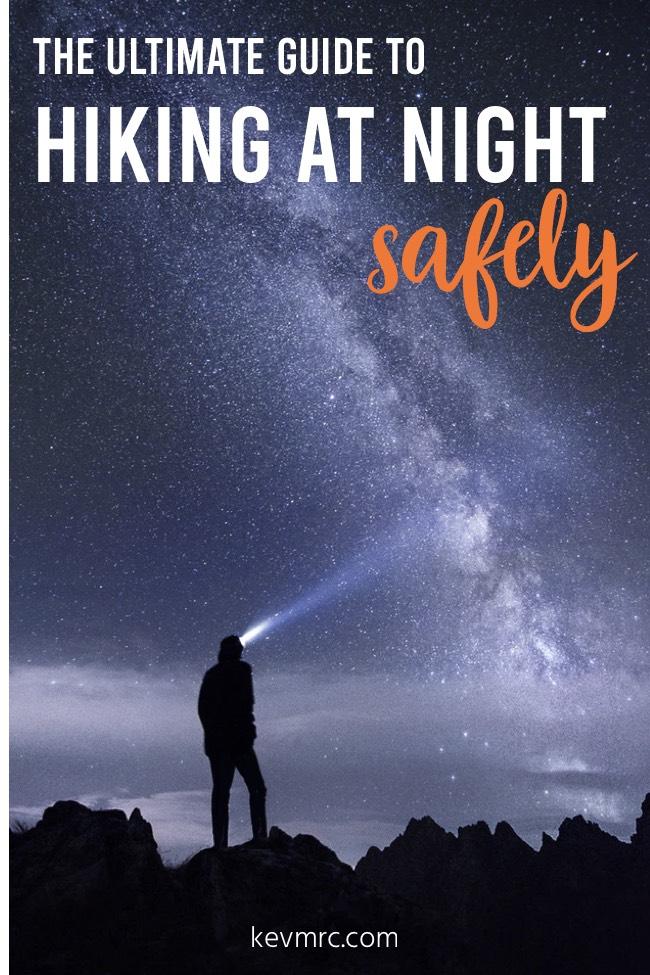

![The Essential Hiking Gear List for Beginners [Free Checklist]](https://www.kevmrc.com/wp-content/uploads/2022/07/the-essential-hiking-gear-list-for-beginners.jpg)
